A Ten-Year Yahtzee Retrospective
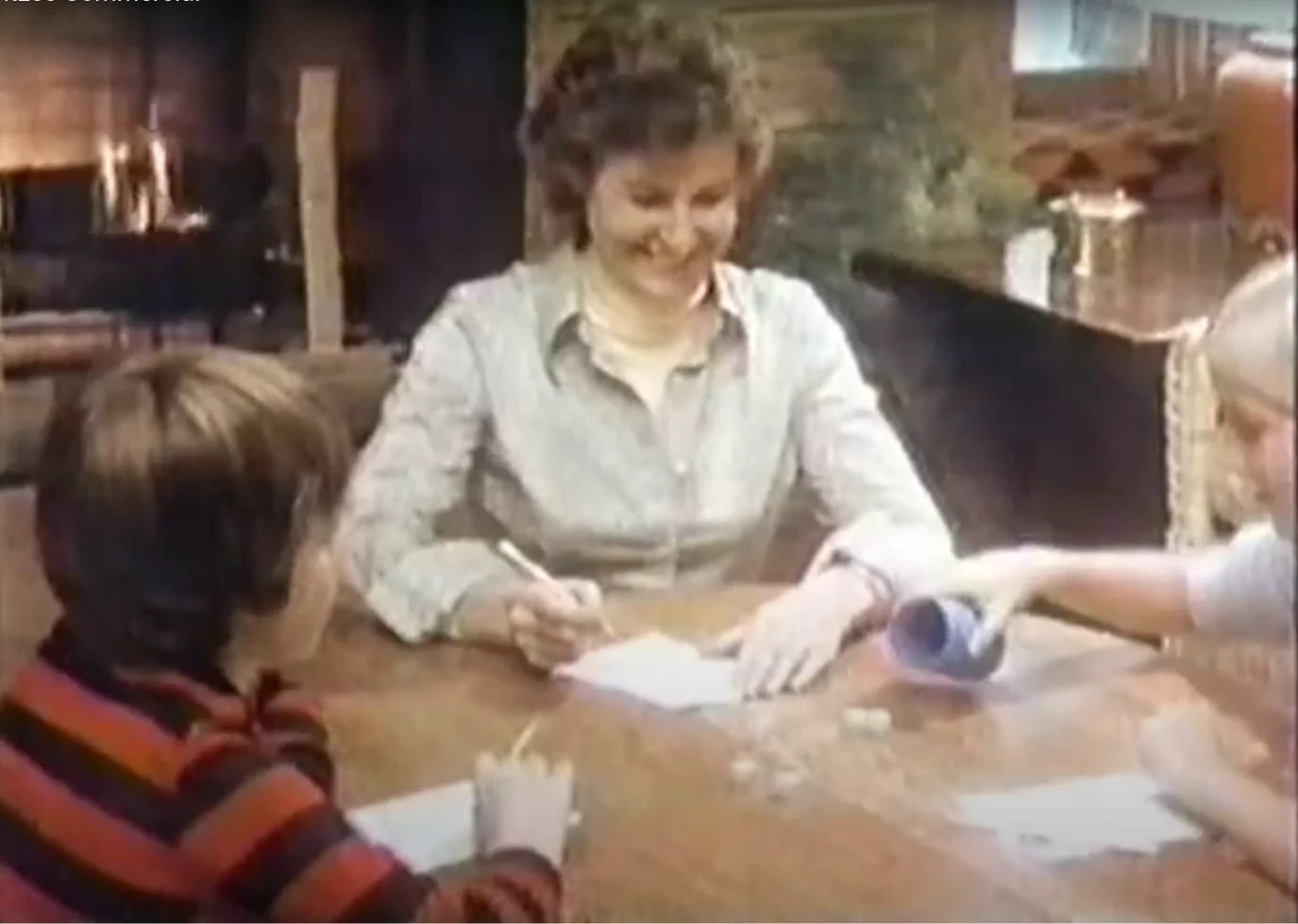
Today is Labor Day in the U.S. and The Yahtzee Manifesto’s decennial anniversary. The Yahtzee Manifesto was created in 2011 to provide useful resources for Yahtzee enthusiasts while spreading the game’s good word to the wider public. A decade later, the world’s most popular dice game continues to expand and our dedication to the mission has never been more steadfast. As we celebrate ten years’ worth of Yahtzee news and propaganda, we take a moment to reflect on the evolution of the game during that time, and what hints can be gleaned about the future of Yahtzee.
The Yahtzee Manifesto
Yahtzee is an enigma. From its earliest days it has been imbued with an air of mystery, enhanced by rumors of occult influence and lingering questions of its true origin. While some of its secrets may never be revealed, the dichotomous nature of the game is clear: people either love it or hate it. The Yahtzee Manifesto was sparked by a dream to provide for the Yahtzeeist proletariat while evangelizing to the non-believers.
But Yahtzee in the today's world faces a new dilemma as it embraces modern technologies while remaining true to its tabletop legacy. It finds itself in the unique position as one the world’s original and most popular video games, with hundreds of electronic versions playable on a multitude of devices, while simultaneously considered by many to be an old-fashioned pastime well past its prime. How can a game that is too dry and dated for modern sensibilities continue to pump out successful video games for state-of-the-art gaming consoles? The answer scratches the surface of Yahtzee’s great hidden truth – it is a game that can be all things to all people.
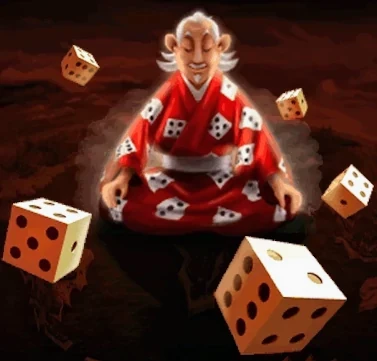
One of the The Yahtzee Manifesto’s main goals is to promote a deeper understanding of Yahtzee’s complicated personality. To glimpse the true soul of Yahtzee is sublime, but it requires hard work and playing a lot of games. But most importantly, a community of rollers must come together to nourish the roots of Yahtzee enlightenment. The shared psychic connections that form during intense gameplay can generate the extra-dimensional forces needed to transcend to a higher plane of Yahtzee. Local Yahtzee communes are hotbeds of activism and leadership development, helping to guide players on their own quests of discovery.
In early 2011 the Yahtzee community lost a vital leader when the popular newsletter Yahtzee Monthly published its final issue. The continuing decline of print media had seemingly put the final nail in the coffin of serious Yahtzee literature and left the dice-rolling community rudderless. Faced with such a bleak landscape, a new voice was needed for a new age. The Yahtzee Manifesto was published on September 5, 2011 to fill the void, pushing back against the tyranny of corporate boardrooms by spreading the Yahtzee gospel directly to the people.
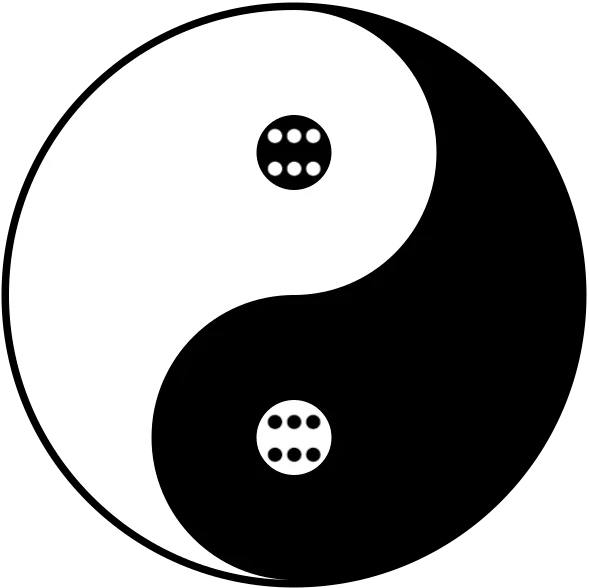
The World Yahtzee Institute made the decision to publish its manifesto on Labor Day to highlight the often overlooked American holiday. The commemoration was forcefully isolated from its international peers who celebrate labor on May 1, or May Day and relegated to the dying days of summer as the earth slowly spins into autumn and then the inevitable grip of icy cold. Meanwhile Memorial Day, a holiday dedicated to pursuits of war and slaughter, enjoys a plumb spot in the blossom of Spring. Feeling let down by inherent biases in the holiday pecking order, the WYI seeks to right the wrongs of the status quo.
What started over ten years ago as a modest guide to gaming strategy has ballooned into the international multimedia conglomerate that you know and love today. Yahtzee workers of the world, unite!
Looking Back: 2011-2021
History tends to repeat itself, and the tabletop gaming industry in the past decade is a prime example of this cyclical rhythm. The lifespan of The Yahtzee Manifesto is neatly bookended by global economic crises, both of which played a major role shaping the Yahtzee market. Lingering effects from the 2008 financial crisis continued to depress the economy when the Manifesto was originally published, which resulted in a surge of board game sales as people chose to forgo more expensive forms of entertainment. The same sales bump was seen at the end of the decade when the coronavirus pandemic lockdowns restricted most leisure activities to more solitary activities enjoyed at home.
Yahtzee proved to be a calming salve during rough times and its popularity continued to grow throughout the decade. But there were highs and lows, as we can see from the most newsworthy Yahtzee events from the period:
 Yahtzee Crime Spree - 2011
Yahtzee Crime Spree - 2011

2011 was plagued by an outbreak of Yahtzee-related violence, making headlines across the world. Most of the incidents seem to have stemmed from deeper inter-personal conflicts that may have been aggravated by challenging economic conditions. But the sudden cluster of Yahtzee crimes was shocking nonetheless.
The most heinous attack ended in a murder on Christmas Day when three brothers killed their own mother when she refused to play Yahtzee with them. In another incident, a Florida man tried to strangle his wife following a disagreement over a game. The exact point of contention is unclear but could have surely been cleared up by referring to the Yahtzee rule book.
Yahtzee crime stories have continued to sporadically appear as the decade progressed, including a recent claim that a man had kidnapped 27 people and forced them to play Yahtzee. This particular tale was debunked as a hoax, but with actual Yahtzee crimes seemingly on the rise players should be prepared for anything.
 World Series of Yahtzee - 2012
World Series of Yahtzee - 2012
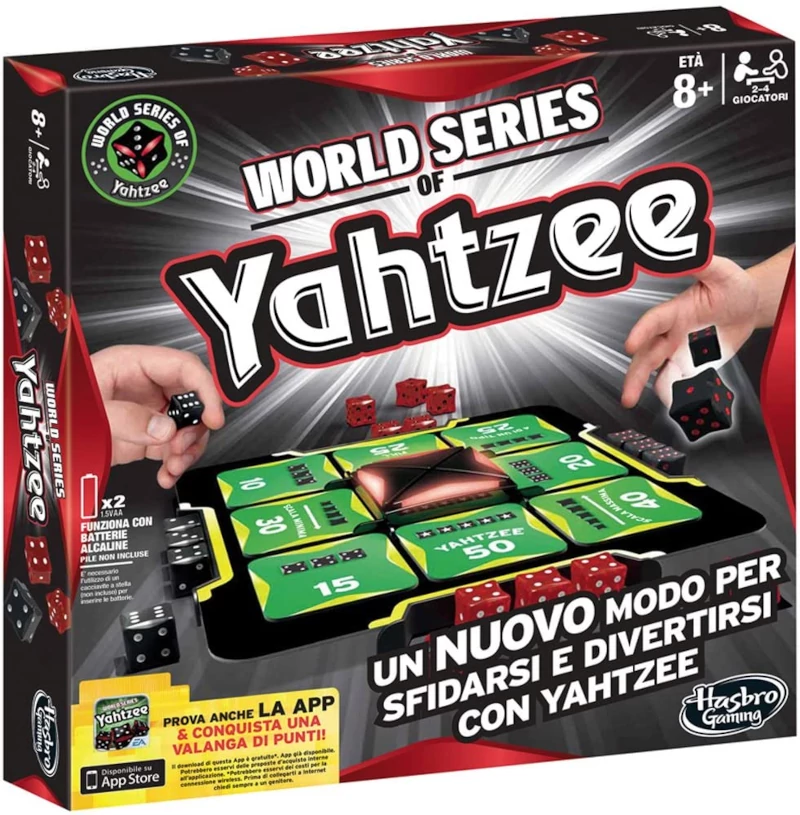
Yahtzee expansion in the 21st century has relied heavily on electronic gaming so it is always a welcome surprise when a new tabletop variant game is released. Derivatives of Yahtzee offer a new way to play an old favorite but it is a rare variant game that can stand the test of time. World Series of Yahtzee didn’t light up the board game sales charts when it launched in 2012 but it remains a cult classic.
World Series of Yahtzee introduces the concept of simultaneous dice rolling where all players fling dice at the same time. Billed as “the high-rolling, high-speed, high-stakes game of Yahtzee” it certainly succeeded in incorporating novel game mechanics. The inclusion of a battery-powered game board really makes the game stand out. There is even a hint of musical chairs as players must score a matching tile before a tune ends.
 "Shakergate" - 2015
"Shakergate" - 2015
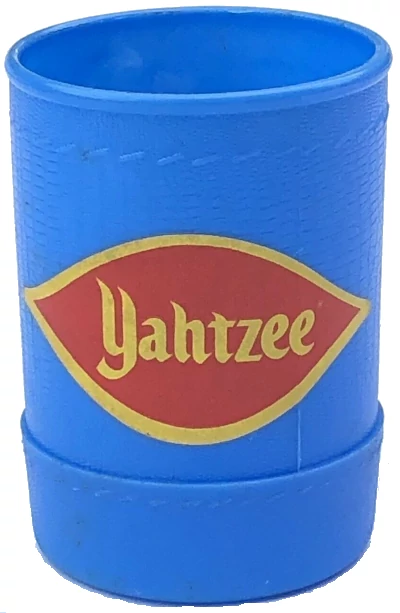
Cheating at Yahtzee is nothing new but rarely had it been so blatantly attempted at the highest level than during the 2015 European Open. Vic Lungren, a young upstart in competitive Yahtzee, was ejected from the tournament during the semi-final round when he was caught using an illegal dice cup, or shaker. A fan watching the match from the stands noticed an abnormal bulge on the surface of Lungren’s Yahtzee cup and brought it to the attention of match officials.
The disqualification caused an uproar among fans, players, and even other Yahtzee tournament officials whose own reputations they suddenly needed to defend. Accusations of match-fixing were aired but nothing could be proven. Lungren never regained his top form. The scandal called into question the legitimacy of his prior victories and he has failed to even qualify for a major tournament since Shakergate.
 Expansion in Asia - 2021
Expansion in Asia - 2021
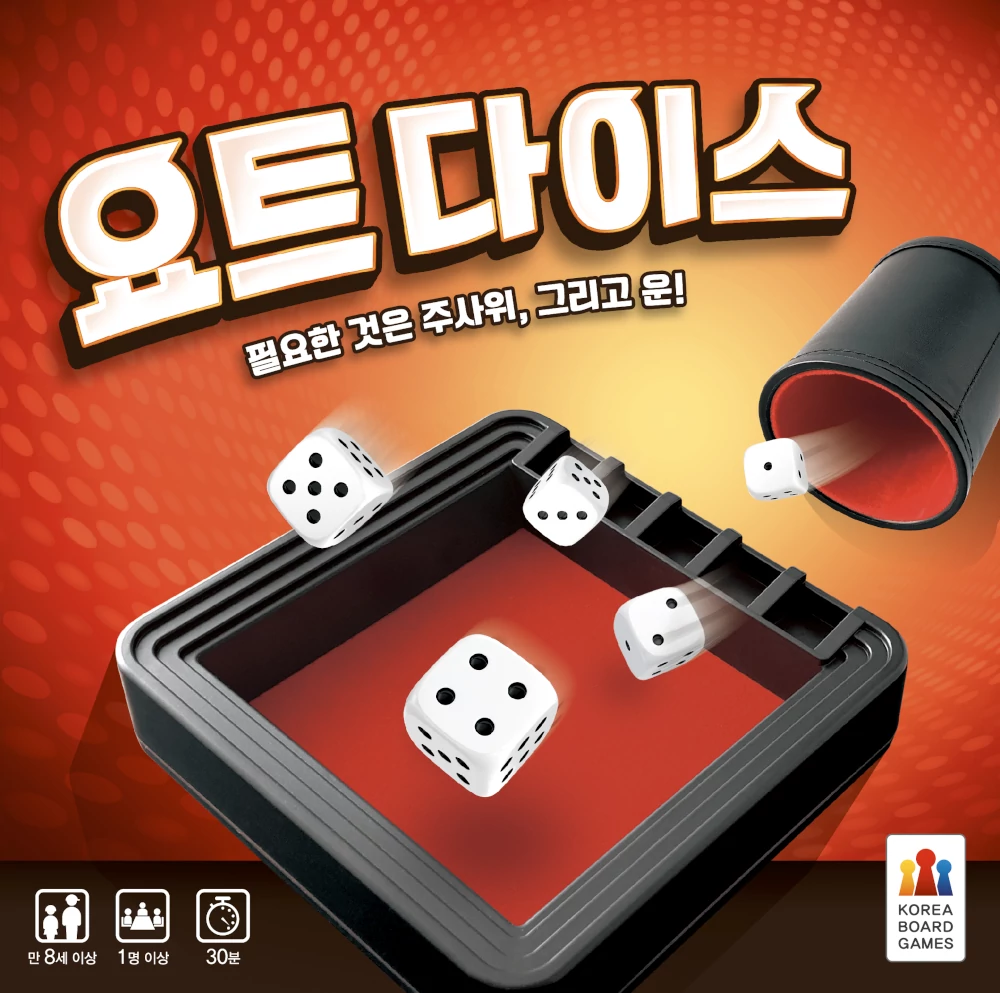
Yahtzee is making strides with market expansion in the 2020s. Ironically, the game’s earliest prototypes were developed in Asia but its modern incarnation has seen only limited success there. That is beginning to change as regional Yahtzee sets and its many variations are being released in ever greater numbers.
The year 2021 saw the release of a South Korean version of Yahtzee from game distributor Korea Board Games. The company has been importing western games since the early 2000s and recently began producing new games in-house. Their Yahtzee release has generated a lot of excitement locally and bodes well for continued Yahtzee uptake.
The Roaring Twenties
In 2017, the global market value of board games, alternatively known as tabletop games, was estimated to be around 7.2 billion U.S. dollars, and was forecast to reach a value of 12 billion U.S. dollars by 2023. But due to a sales spike during the coronavirus pandemic, that estimate is now expected to be reached two years earlier, by the end of 2021. If there was one upside to a global lockdown, at least you could get in a few (thousand) good games of Yahtzee.
Is it a Board Game?
One of the age-old questions in Yahtzee theory revolves around the game’s proper classification. While variant games like Showdown Yahtzee and World Series of Yahtzee use an actual game board, purist thinkers reject the idea of Yahtzee as a board game. Technically, of course, they are correct – classic Yahtzee doesn’t used a board. But the modern usage of the term “board game” has drifted over the years to include a variety of games that do not strictly require a board to play.
The gaming industry defines tabletop games as typically being played on a hard surface or table. They usually include a board, game pieces or markers, figurines, cards, and/or dice. Other game equipment or accessories may be also be used depending on the complexity and style of the game.
The State of Yahtzee
Industry estimates suggest that the board game market will continue to grow at the healthy pace of 13% annually until at least 2026. In much the same way as e-books did not spell the end of paperbacks - despite a lot of doom and gloom, the popularity of video games hasn’t slowed the explosive growth of traditional tabletop gaming.
Classic board games like Yahtzee have been buoyed by a newfound appreciation for old-school trends amongst younger generations of gamers who eschew more modern electronic alternatives. The proliferation of board game cafes points to the strong demand for retro gaming. These meeting places often serve up food and drinks but the main course is a huge selection of games to choose from. The social aspect of tabletop games is a perfect fit for the cafe concept where customers can pay a fixed price to play any games they want.
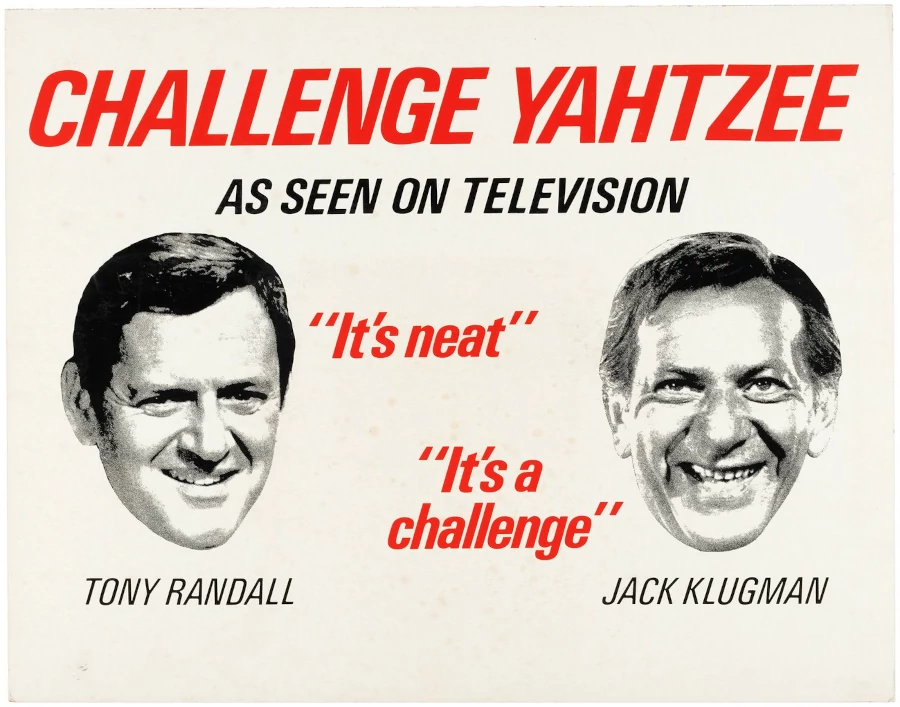
Celebrity endorsements and the rise of social media stars is also expected to act as a catalyst for future growth in the board game market. Board game podcasts and online communities are helping to once again popularize old-school ideas like a weekly Yahtzee game night. The web series TableTop, hosted by Wil Wheaton, generated a lot of excitement within geek culture as it featured a wide variety of games being played with celebrity guests.
But while pandemic lockdowns have driven people to focus on indoor pastimes, the overall economic situation for the gaming industry is not all rosy. While increasing numbers of people may have played more board games during lockdowns, the market as a whole has undergone slight contractions over the course of the pandemic as damaged supply chains disrupted manufacturing processes. And board game cafes have struggled to survive during lockdowns, with foot traffic falling by 35% in U.S. establishments.
The Next Decade
While kinks in the gaming industry’s supply side will eventually untangle, the worldwide demand for Yahtzee shows no signs of slowing down. And game companies stand ready to deliver fresh Yahtzee content to meet the people’s needs. Electronic Yahtzee games are continually developed for any type of device that can play a game while new tabletop variants, like the upcoming “Yahtzee Frenzee”, push the game in unexpected new directions. Meanwhile Hasbro has partnered with companies to use the Yahtzee brand in surprising ways away from the gaming table, including a themed Yahtzee slot machine
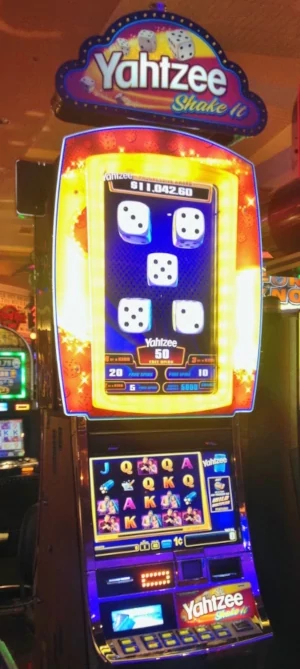
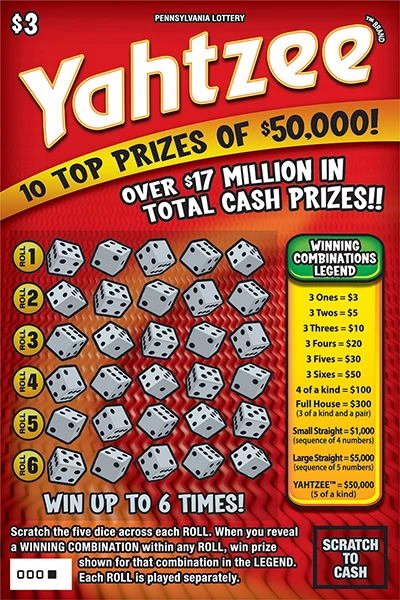
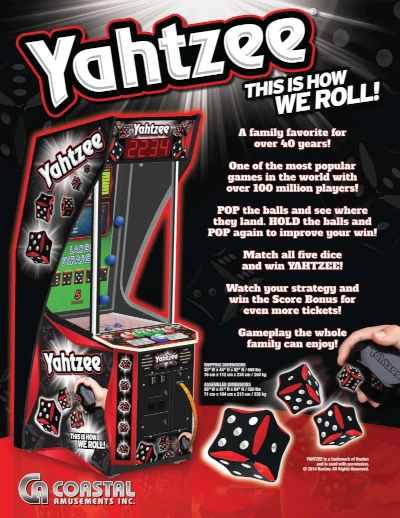
The state of Yahtzee is strong and its future looks bright. The past ten years have taught us that Yahtzee will always have a few more tricks up her sleeve. As for The Yahtzee Manifesto, what began as a dream of Yahtzee world domination has led to a zany decade of dice and the near-legitimacy that we enjoy today.
Thank you readers and fellow Yahtzee enthusiasts, for your support! Here's to the next ten years - let's roll!

